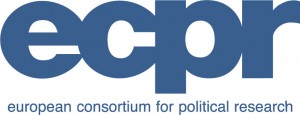The ECPR Standing Group on Political Sociology provides a forum for researchers applying sociological approaches to study political facts. It was established in 2010 and aims at building an active network of sociologically inclined political and social scientists interested in political topics and at promoting political sociology approaches within political science.
The scholars forming the political sociology standing group present their research at the ECPR Joint Sessions and General Conferences, where they sponsor panel sessions. In addition to circulating information on scientific activities and job offers in the realm of political sociology, this website should also serve as a forum of exchange for the teaching of political sociology. It provides a possibility to share syllabis of political sociology courses.
Steering committee
Oscar Mazzoleni, University of Lausanne (chair)
Laura Landorff, Lund University (vice-chair)
Johannes Kiess, University of Siegen (secretary)
Advisory committee
Cecilia Biancalana, University of Turin
Charlotte Galpin, University of Birmingham
Alon Helled, University of Florence
Niilo Kauppi, University of Stasbourg
David Swartz, Boston University
Hans-Jörg Trenz, University of Copenhagen
Webmaster
Nicholas Pohl, University of Lausanne
***
Peculiarities of sociological approaches to political systems
Political sociology is a research tradition within the realm of political and social sciences. This tradition shares much with other sub-disciplines of political science, but it also set itself apart from those on several points.
It is illustrated by classical authors such as Stein Rokkan, Seymour Martin Lipset, Erik Allard, or Charles Tilly, and by many contemporary scholars such as Robert Putnam, Ronald Ingelhart, or Doug McAdam. Political sociologists refer to intellectual traditions stemming from founding fathers such as Max Weber, Norbert Elias, Raymond Aron, Paul Lazarsfeld, Michel Foucault, or Joseph Gusfield, who have provided us with general theories including analyzes of the political dimensions of social systems. They are also inspired by many sociologists – among others Robert Merton, Neil Smelser, Pierre Bourdieu, Richard Hoggart, Peter Berger, Thomas Luckman, Raymond Boudon, Erving Goffman, Howard Becker, Aaron V. Cicourel, Harold Garfinkel – whose works can be put to use to carry on political studies, even if they do not mainly focus on politics. The political sociological tradition also refers to the writings of many other social scientists. They may be historians (Fernand Braudel, Erik Hobsbawn, Ernst Kantorowicz, Moses Finley, Immanuel Wallerstein, Theda Skocpol, Edward P. Thompson, Timothy Tackett), anthropologists (Arthur M. Hocart, James G. Frazer, Claude Levi-Strauss, Edward E. Evans Pritchard, Frederick G. Bailey, Edmund R. Leach), economists (Albert O. Hirschman, Joseph Schumpeter), and specialists of gender studies (Joan Scott), or cultural studies (David Morley), and so on…Such diverse sources of inspiration provide original research questions and hypotheses that need to be broadly disseminated among political scientists and within ECPR workshops and panels.
Because political sociologists are close to social scientists who share their intellectual concerns, they are inclined to use the whole range of the methodologies of the social sciences, quantitative as well as qualitative analyses, in-depth interviews, focus groups, studies of archives and spontaneous social artifacts, and direct observations. Because of their peculiar empirical leanings, political sociologists also advocate reflexive uses of those methodologies. They are sensitive to data-embedded social biases, as well as to the feedback effects of social sciences in the social world. Like all political scientists, political sociologists are aware of the relative autonomy of the political realm. They however also have a specific interest in the linkage of the political dimension to other components of societies. Without neglecting political and ideological factors, they are therefore inclined to launch original research programs, on sociological aspects of mainstream political science classical topics, such as socio-demographic determinants of political cleavages, recruitment patterns, attitudes, and behaviors. They are keeping a close watch on the relationship between economic, cultural, and social resources of citizens, activists, stakeholders, policy makers, and politicians and their attitudes toward the political realm. Politics-society interactions and the analysis of polities, public policies, and politics through social variables form the core of political sociology. This way, political sociology sets itself apart from other research perspectives such as institutionalism or rational choice. The main variables of political sociology inquiry range from social structures, agents and actions to institutionalized political processes. How do broad social processes influence and shape polities, publics policies, and politics, and how they are shaped by political institutions and decision making processes, are current sociological questions that need to be engaged with seriously among political science circles.

